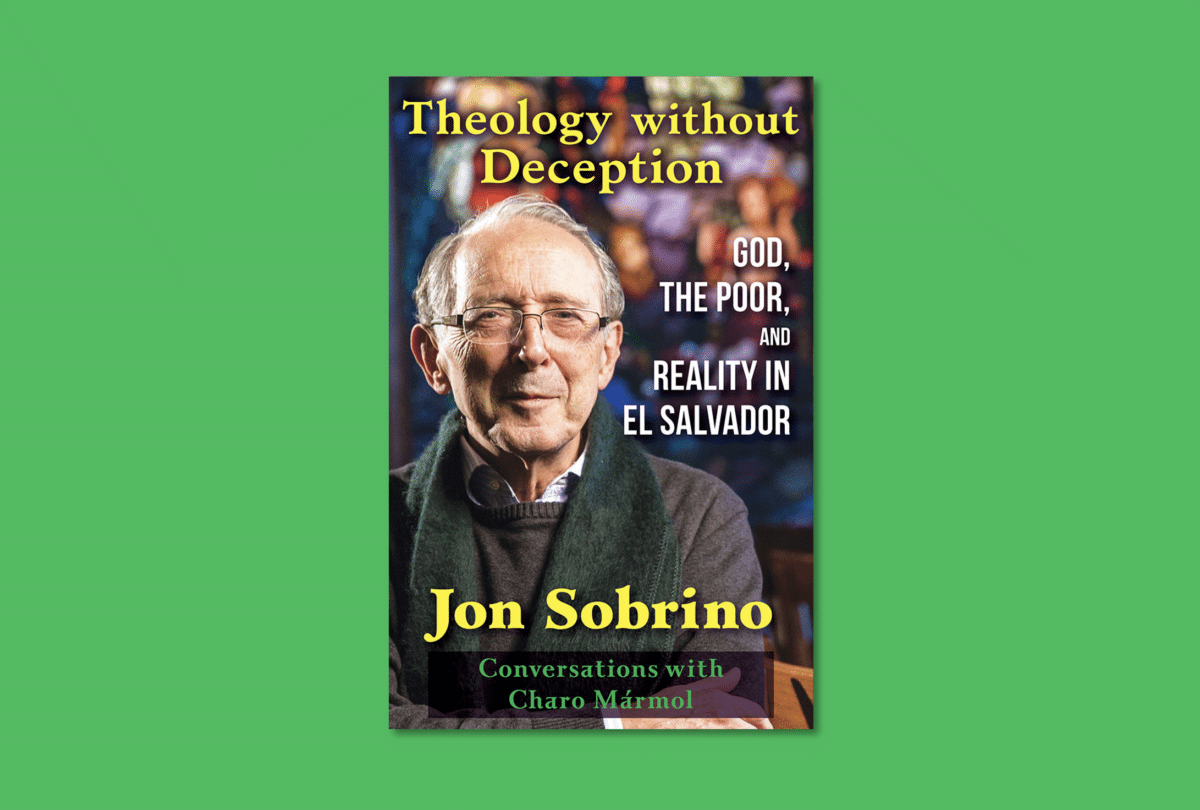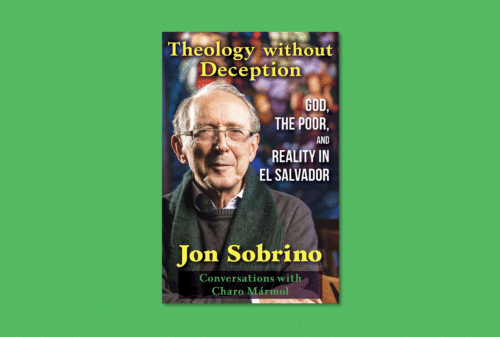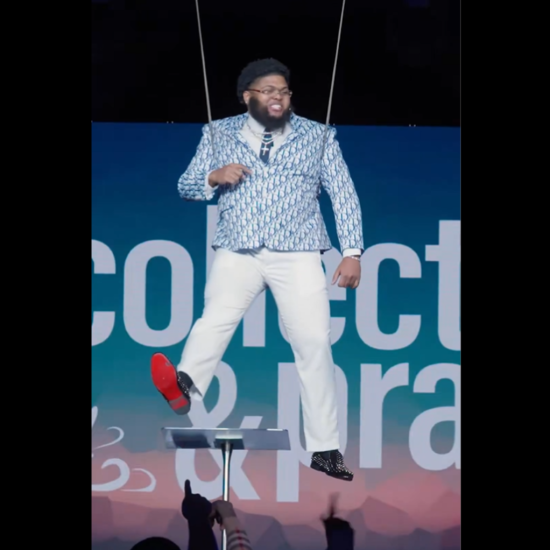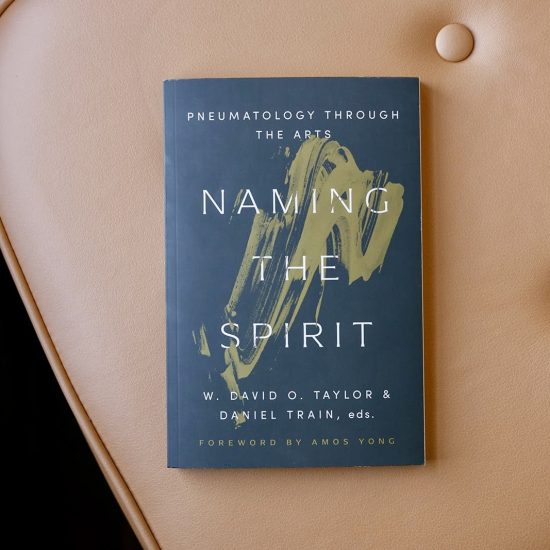

THEOLOGY WITHOUT DECEPTION: God, the Poor, and Reality in El Salvador. By Jon Sobrino, Conversations with Charo Mármol. Maryknoll, NY: Orbis Books, 2023. Xi + 225 pages.
During my time in seminary back in the early 1980s, I developed a strong interest in Liberation Theology. With that in mind, I decided to write a paper on the Christologies of Liberation theologians for my systematic theology class. One of the books I turned to as I wrote that paper was Jon Sobrino’s Christology at the Crossroads: A Latin American Approach. Over the years, on occasion, I’ve turned to Sobrino’s works, several of which focus on Christology, for insight into matters of theology and praxis. I’ve also followed his story, including the murder of his colleagues at the University of Central America in November 1989. Sobrino likely survived that attack by a Salvadoran death squad because he was out of the country. It was this decades-long interest in both Liberation Theology and Sobrino’s contributions that led me to request a review copy of Sobrino’s latest book: Theology without Deception.
Sobrino’s Theology Without Deception is largely based on conversations he had with journalist Charo Mármol that took place over several years. While the book was completed in 2015 it was not released. Since then, Sobrino had begun work on a separate book that would expand on the earlier book. That expanded version of the earlier book undertaken with Mármol has now been made available in this volume. So, with the publication of Theology Without Deception we have an opportunity to gain deeper insight into Sobrino’s story as well as the development of Liberation Theology. We also gain insight into the realities of life in Central America (a region of significant destabilizing U.S. involvement), along with the involvement of the Jesuits in that region and the struggles on the part of these Jesuits for justice that led to the deaths of several religious figures including Archbishop Oscar Romero, who is now canonized as a Catholic saint.
Fr. Jon Sobrino was born in 1938 in Spain. He was a member of a family with largely Basque ancestry. After studying at a Jesuit school in Barcelona, he entered the Jesuit novitiate in 1956. He would then volunteer to go to Central America and continue his novitiate in El Salvador. So, in 1957, Sobrino arrived in El Salvador, encountering both the poverty and religiosity of the people of that nation for the first time. The goal was to make these people good Catholics, “like us Castilians and Basques” (p. 3). After taking his vows in 1958 he was sent to Cuba for further education because since, at the time, there were no Jesuit educational institutions in Central America. After the revolution in Cuba, he was sent to Saint Louis University in the United States for further education. During his time in St. Louis, he discovered a very different world from what he had experienced in El Salvador and Cuba, as well as Franco’s Spain. He would spend five years in St. Louis, gaining a master’s degree in engineering, even though he had little interest in engineering. Despite his lack of interest, his order perceived a need for such expertise and as a good Jesuit, he did as he was asked. Ultimately, his superiors realized that he might be of greater use if he took up a different vocation. Thus, he was sent to Germany where he wrote his doctoral dissertation on the Christologies of Wolfhart Pannenberg and Jürgen Moltmann.
Having finished his education he returned to El Salvador, the topic of Chapter 2. It was on the return to El Salvador that he had an awakening to the needs of the poor, the reality of martyrdom among those who stood up for justice, and in the course of this time gaining a glimpse of God. Sobrino points out that while in St. Louis, he struggled with the question of God. Upon his return to El Salvador, it was the situation faced by the poor in the region that led to a spiritual awakening. In large part, this was due to his reading and use of Ignatius’ Spiritual Exercises and the teaching of the Exercises by his mentor Ignacio Ellacuría. In essence, he claims to have awakened from a dream that led to a realization of what it is to be human. While his questions about God did not disappear, the negativity that had overshadowed him dissipated. Thus, as for doing theology or being a theologian, it is in the context of experiencing and conceptualizing reality using concepts from the Christian tradition. For Sobrino, therefore, “doing theology is not the exercise of a profession, certainly, but a way of being; it is not something that has formally arisen for me because I am a Christian, but because I am human (although the human in me has included the Christian from the beginning; it is not, at first, a service to others, to the church, but a necessity for myself” (p. 55). Thus, in whatever situation he finds himself, he asks the question “who is Jesus?”
In Chapter 3 Sobrino speaks to his calling by the Jesuit community in El Salvador to teach theology. He discusses this calling in the context of the assassination of fellow Jesuit Rutilio Grande, who devoted his life to working among the poor, as well as his encounters with Pedro Arrupe, the head of the Jesuit order. In this chapter, Sobrino shares his thoughts about the courses he taught and the books he wrote as a professor of theology. Many of those courses and books focused on Christology. As he taught and wrote on Christology, as well as reflecting on the murders of Jesuits taking place around him, he faced the question of the role the cross plays in Christian life and theology.
The question of the role of the cross comes into play as we move into Chapter 4, where Mármol asks Sobrino about the key themes in his work. Sobrino lifts up four primary themes that emerged in his theological work: 1) When it comes to the majority of people in the world, they are crucified people. 2) With that in mind, the second theme is Jesus of Nazareth (historical Jesus). 3) He then lifts up the ambiguities of the conciliar church, as well as the existence of the church of the poor. 4) The creation of a “new and necessary civilization,” that will deal with the reality of poverty. This fourth theme emerged from the thought of Sobrino’s colleague, Ignacio Ellacuría. The message here is the call of followers of Jesus to overcome the civilization of wealth so that everyone’s needs might be met.
When we turn to Chapter 5, Mármol asks Sobrino several more personal questions that deal with his relationships with and views of both Archbishop Oscar Romero and Pope Francis (though I should note that the interview took place in year 5 of Francis’ papacy, and we’re in year 10 now. It would be interesting to see what Sobrino thinks of Francis’ reign after ten years). Perhaps more important Than Sobrino’s views of Pope Francis are Sobrino’s perceptions of the ministry of Romero, whom he held in high regard for his personal holiness and commitment to justice. He writes that “with people like Monseñor Romero it is possible to live a Christian life even in the midst of difficulties, tension, and threats” (p. 139).
The previous chapters are based on his interviews with journalist Charo Mármol, when we turn to Chapter 6 Sobrino begins writing his own reflection that focuses on “The Legacy of the Eight UCA Martyrs.” The UCA is the Jesuit-sponsored University of Central America that is located in El Salvador. In November 1989, while Sobrino was teaching in Thailand, members of the Salvadoran military descended on the University of Central America campus. They killed six Jesuit priests, including Ignacio Ellacuría, Sobrino’s longtime friend and coworker in El Salvador, as well as the president of the university and a noted advocate for justice. Besides the six Jesuit priests, all of whom were related to the university in some capacity, the soldiers killed two women. One of these women, Elba Ramos, was a mother who served as a cook for the community. The second woman, Celina, was Elba’s fifteen-year-old daughter, who not only assisted her mother in the kitchen, but she was completing her studies and served as a catechist. These two women are in his estimation martyrs and members of a crucified people. When it comes to all eight of these persons, whether Jesuits or not, they are, in Sobrino’s estimation martyrs, and who as followers of Jesus reproduced the life of Jesus, a commitment that led to their deaths. The voices of their blood cry out to the world, such that “their memory will not let us rest in peace” (p. 162).
The final chapter of Sorino’s Theology without Deception is titled “A Long Epilogue.” In this Epilogue Sobrino shares with Charo Mármol about what it meant to walk with Oscar Romero and Ignacio Ellacuría, as well as with Jesus of Nazareth and his God. Sobrino reflects here on the canonization of Oscar Romero. He reflects also on the effects of the COVID-19 Pandemic, including the theological implications. This is a section that many who have come to believe that the pandemic wasn’t much of anything might want to read. One point I need to make here is that while Oscar Romero’s story is known to at least some Christians, Sobrino’s reflections, based as they are on his own experiences with Romero, can help expand our understanding of Romero’s place in the larger story of Central America. As for his discussions of his friend, the martyred Ellacuría, they reveal something about a figure who played an important role in the development of Liberation Theology, but who isn’t as well known to folks as Gustavo Gutierrez or Leonardo Boff. Perhaps the reason Ellacuría is less well known is that he focused his attention on the practical dimensions of liberation theology and less time writing about it. Sobrino helps us better understand his contributions to liberation theology, the church, and the cause of the poor, as well as the implications of his martyrdom. Sobrino, writing in May of 2021, at the age of eighty-two, in poor health, states that to walk with God involves walking with Jesus, Ellacuría, and Romero, as well as men and women who are good human beings. He offers three expressions of what it means to walk with God. First, it means walking with humility and worrying about ourselves as if we are what is ultimate. Secondly, it is to walk with hope. Third it involves walking with gratitude (p. 202).
Sobrino’s Theology without Deception closes with four appendices. These appendices include transcriptions of the “Pact of the Catacombs, a Poor Servant Church,” which emerged out of Vatican II. Secondly, he reproduces Ellacuría’s letter from 1977 to Romero. There is a letter written in 1990 by Sobrino to Ellacuría on the first anniversary of his friend’s assassination, in which Sobrino gives thanks that his friend left him with “nothing more essential than the practice of compassion for a crucified people, and that nothing is more human and humanizing than faith” (p. 211). Finally, the authors reproduce Ellacuría’s commencement address delivered at Santa Clara University in 1982, “The Task of a Christian University.” Sobrino’s friend reminds the people of that university that a Christian university is not only involved in matters of the intellect, but also its calling to be a social force called to transform the social reality of which it is a part.
Reading Sobrino’s reflections and thoughts about matters of theology and social realities, especially the realities faced by the poor and the oppressed, opens windows for further reflection about what it means to be a follower of Jesus committed to the welfare of humanity. The conversations found here in Theology without Deception help us better understand the work done by members of the church who were committed to justice, reminding us that church leaders such as Oscar Romero acted despite facing significant opposition from his fellow Salvadoran bishops. Therefore, Sobrino helps better understand the foundations and impact of liberation theology. Sobrino confesses that he didn’t spend much time working among the poor since he had been called by the Jesuit order to serve as a teacher and theologian, which means that some of his reflections are more theoretical in nature, however, they emerged from living within a community that produced figures such as St. Oscar Romero. Having read and reflected on Sobrino’s memoir of his life and ministry, including his relationships with important figures in the life of the church who were in life committed to the good of humanity, I can say that this is a book worth spending time with. Those who live in the First World and take up Sobrino’s Theology without Deception, will, hopefully, come to better understand the realities faced by our neighbors in the Third World. That is especially true of those living in Central America, some of whom have been seeking a new life north of the United States border. Liberation theology, of which Sobrino has been a leading figure, has lifted up the premise that God has a preferential option for the poor. To read this book is to gain better insight into what that might mean.
This review originally appeared on BobCornwall.com.
Robert D. Cornwall is an ordained minister in the Christian Church (Disciples of Christ). Now retired from his ministry at Central Woodward Christian Church (Disciples of Christ) of Troy, Michigan, he serves as Minister-at-Large in Troy. He holds a Ph.D. in Historical Theology from Fuller Theological Seminary and is the author of numerous books including his latest “Second Thoughts about the Second Coming: Understanding the End Times, Our Future, and Christian Hope” coauthored with Ronald J. Allen. His blog Ponderings on a Faith Journey can be found at www.bobcornwall.com.





